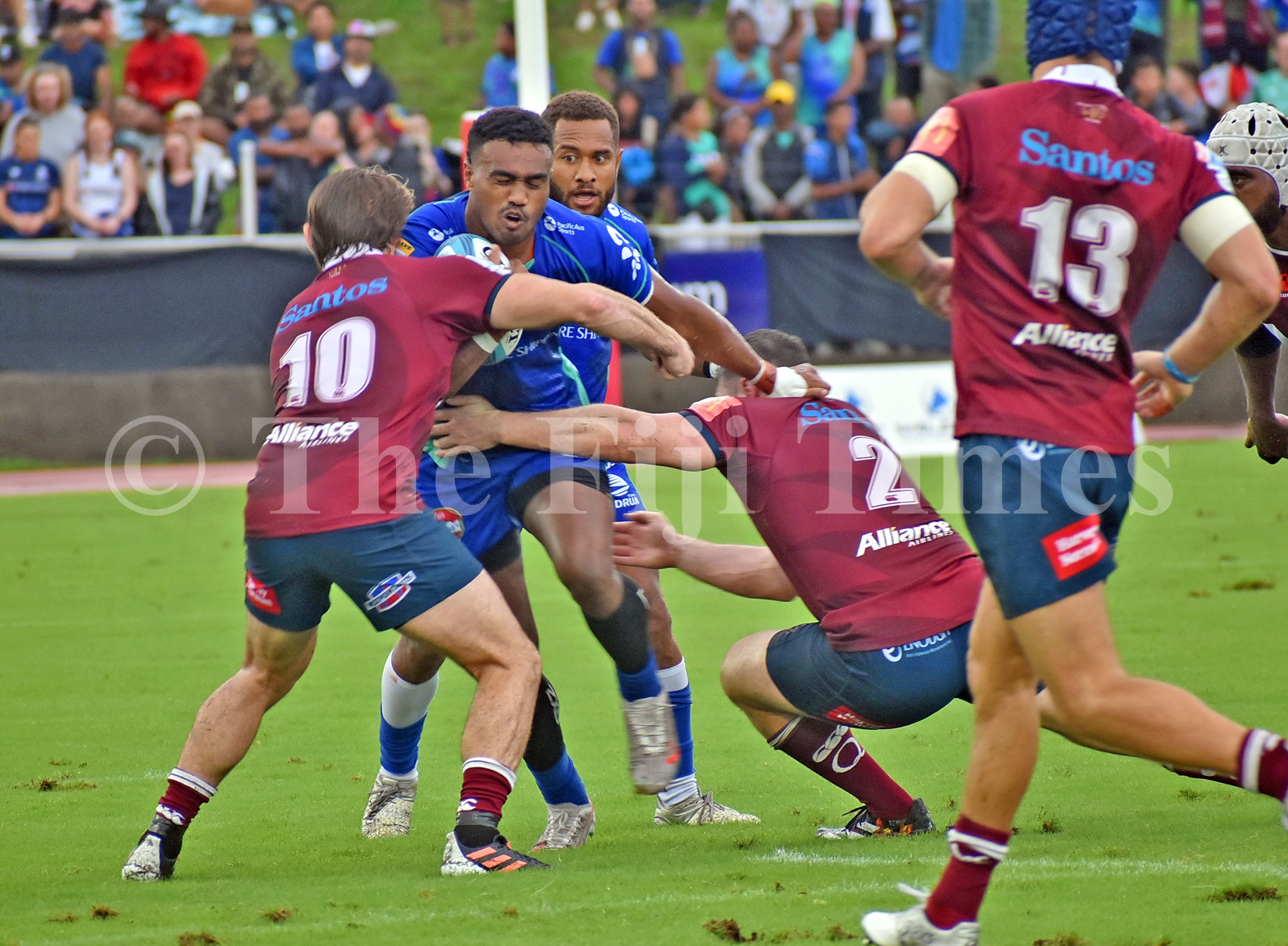What was generally known as Fiji’s off-peak tourism season may soon be a thing of the past with the local tourism sector exploring strategies to continue diversifying experiences for its international visitors.
In a recent comprehensive study: An Economic Benefits Study of Sports Tourism in Fiji: A Case Study on the Fijian Drua 2023 Super Rugby Pacific season, exciting revelations discovered the significant economic and societal advantages that arise from hosting major sporting events in Fiji, pointing towards a promising future for the nation’s tourism sector.
The study was conducted to provide an economic impact evaluation of the Super Rugby events hosted in Fiji in 2023 – as an example of what sports tourism strategy can achieve.
The study conducted by Tourism Fiji, in collaboration with the Market Development Facility and consultant Barry Burgan indicated that the direct expenditure associated with game attendees and event operations reached $F67.1 million.
This offered a substantial economic boost and created employment opportunities for 21,000 individuals which was equivalent to 520 full-time jobs.
“A record 58,942 individuals attended the Fijian Drua Super Rugby Pacific games in its 2023 season and notably, 21 per cent of these attendees were international visitors which in return inject vitality into the local economy,” the report stated.
“Crucially, this study emphasises the invaluable impact of international visitors, who, on average, spent $F6,837 during their stay, contributing to a total expenditure of $F40m.
“The domestic labour and economic impact are also substantial, contributing $F11.5m to new local incomes and creating 242 full-time equivalent jobs.”
Notably, the report indicated that domestic tourism is also positively influenced, with games generating 20,970 visitor nights and spending of $F2.35m among local tourists.
Tourism Fiji chief executive Brent Hill said this influx of spending from 4676 new visitors also generated 40,328 overseas visitor nights, providing a considerable stimulus to Fiji’s tourism industry.
He said sports tourism would not only boost the local economy but also diversify and extend tourism benefits.
Mr Hill, who has been at the helm of the government’s tourism marketing arm for the past three years, also explained that such a comprehensive study would allow exploring innovative strategies, especially during shoulder periods, to sustain the momentum and continue diversifying tourism experiences and ensured Fiji remained a compelling destination for visitors throughout the year.
Fijian Drua chief executive Mark Evans saw the team’s success in the 2023 season as a testament to the potential of sports tourism for economic and societal growth in Fiji.
The study also discovered that 552 overseas visitors attended as spectators to at least one game in the Fiji Drua season (9,936 attendees).
What was rather interesting to note was the fact that 4676 of these visitors had visits that were impacted because they attended a game while 971 overseas visitor participants attended a game.
These visits in turn created 40,328 visitor nights in Fiji.
“Visitors spent an estimated $F5.6m in attending games.
“Additionally, some Fijians expressed their intent to travel abroad to attend games if they were not held locally, amounting to an estimated foregone spend of $4.5m.
“There was also an estimated $8m in participant-created expenditure, bringing the total estimate of created expenditure to $18.1m.
“This expenditure stimulated Fiji’s Gross Domestic Product through direct and induced effects of $11.5m and created 242 new full-time equivalent job opportunities for Fijians.”
It then noted that the tangible benefits include incremental tourism outcomes (i.e visitors, visitor night and spending), retained spending (Fijians who would travel elsewhere if not for these events), and external funding of the event.
The study stated that the intangible benefits potentially include the well-being impact for the local community (including impacts on national pride), stimulus of repeat tourism, development of tourism brand, and promotion of local business.



